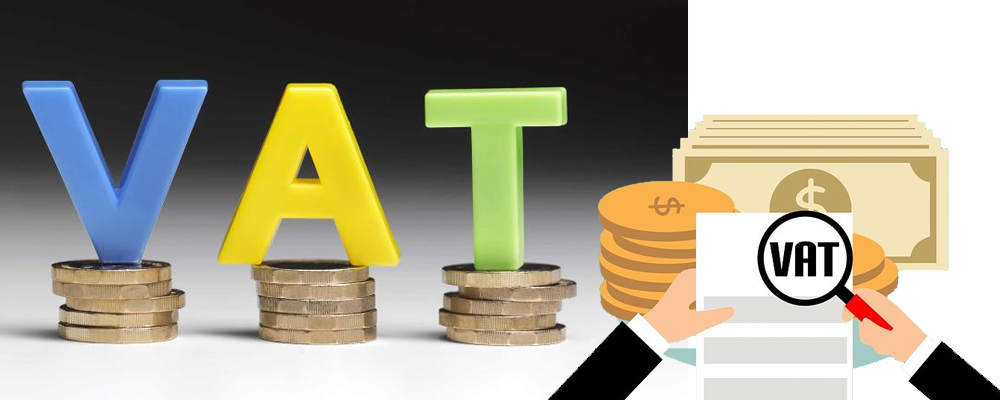Value-added tax, popularly called as VAT, is a sales tax. It is a tax not on the overall value of the good, but only on the value added by the final seller. Thus, the seller has to pay a tax on the net value which was added by him in the process of production, i.e. gross value minus the value of the inputs or commodities purchased from other firms.
VAT is a type of indirect tax levied on the goods and services for value added at every point of production or distribution cycle, starting from raw materials to the last stage of final retail purchase.
VAT was introduced on April 1st, 2005. As per the VAT, the amount of value added on to every stage is at first recognised, then tax is levied on the same. Later, the consumer has to pay the complete VAT while buying the goods, thus VAT is also a Consumption tax.
Why was VAT introduced?
Mainly VAT was introduced to eliminate the double tax as well as the cascading effect of the existing sales tax structure.
A cascading effect is when a tax is levied at every stage of the sale. The tax so paid is also on the tax paid by the previous buyer, hence the consumer pays tax on already paid tax.
Need A Legal Advice
The internet is not a lawyer and neither are you. Talk to a real lawyer about your legal issue

Advantages of VAT
Adjustment on purchased goods- As per the present system, the tax paid on manufactured goods has to be adjusted against the tax payable on the manufactured goods.
Adjustment of the purchased goods to depend on the amount of tax payable- there are no provisions over the refund or any carry over upon such goods, except in the case of export goods or goods manufactured out of the country or sale to a registered dealer. Similarly, on the sale of interstate tax-paid goods, no refund shall be provided.
Transparency- previously, the tax paid in the previous stages on the goods or the sale or purchase was not transparent, as the amount of tax which was applied over the goods was not known at the subsequent stage. However, in the VAT system the amount of tax levied at every stage of the sale or purchase of goods would be known.
Fair- VAT introduces uniform tax rates across the state, hence unfair advantages could not be taken while the tax is levied.
Simplified procedure- procedures related to the filing of returns, payments of taxes, furnishing declaration and assessment have been simplified under the VAT system.
Minimize the discretion- VAT aims to provide minimum discretion, with the assessing officer so that every person is treated in a similar manner. There would be no discretion in the imposition of penalty, late filing of returns, non filing of returns, or tax evasion. Such a system would be free of harassment.
Computerisation- the digitalisation of the taxation system would result in the focus on the tax evaders. In a large number of cases, no processing or scrutiny of returns would be required as it would free the tax complaint dealers from all the harassment which is part of the assessment.
Disadvantages of VAT-
Discourage spending- critics point out that taxing income sometimes has the perverse effect of dissuading people from earning it. If the country started to tax spending it would result in spending less and saving more, as saving would be tax free. It would impact the economy negatively.
Repressiveness- in a progressive tax system, the more you earn, the more you spend, however, this would be opposed in the case of VAT as it is inherently regressive. Generally the poorer a person is, the more likely he is to spend, rather than saving his money. Which means a large proportion of the population, i.e. a low earning individual’s income shall be subjected to VAT rather than that of a higher earner’s income.
Determining VAT policy- one of the ways to decrease the regressive nature of VAT is to differentiate the items which are subject to it. For example, relieving the energy or rent from the VAT would lessen the impact on the poor. For example, Ireland has excluded food, medicines, and children’s clothing from VAT. Obviously, determining which products should be subjected to VAT would be under political discussion and depend upon the intention of the Government.





 Talk to a Lawyer
Talk to a Lawyer